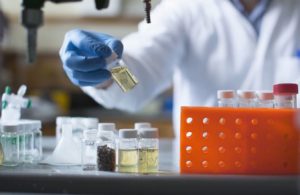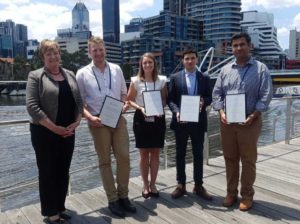
Mercury removal made easy
Mercury pollution is a global problem in water, air and soil near goldmines, cement and other heavy industries burning fossil fuels – with removal too expensive […]

Mercury pollution is a global problem in water, air and soil near goldmines, cement and other heavy industries burning fossil fuels – with removal too expensive […]

An international research team has moved closer to developing a more sustainable, rechargeable ‘organic’ battery model by doubling its energy storage capability. With the aim to […]

The use of nanotechnology for targeted drug delivery has seen higher degree researcher Melanie Fuller present at a national defence forum in Melbourne. The molecular science […]
Flinders University can boast an Ig Nobel prize! Professor Colin Raston has been honoured with the coveted award for inventing a device that can change the structure of proteins, famously demonstrated by uncooking an egg.
The feat of science that has “made people laugh, then made them think” has earned him and his team a “baby” Nobel, a prize almost as famous as its Swedish namesake.
Flinders and CSIRO are jointly running a careers-focused event for school students on the Flinders University campus on June 22 and 25.
Ilka Wallis, a PhD candidate in Flinders University’s School of the Environment, is investigating how arsenic may leach into underground water.
Budding neuroscientist Emma Lawrance has just won a prestigious Clarendon Scholarship to study at Oxford.